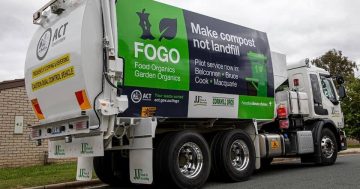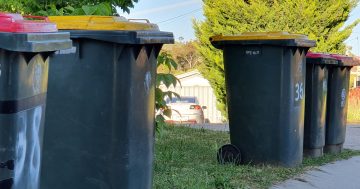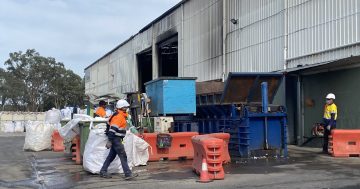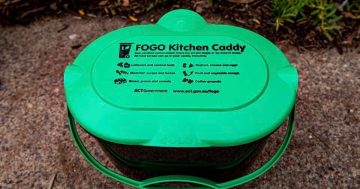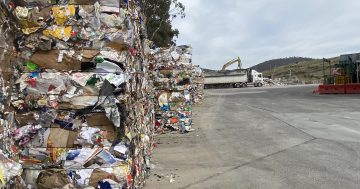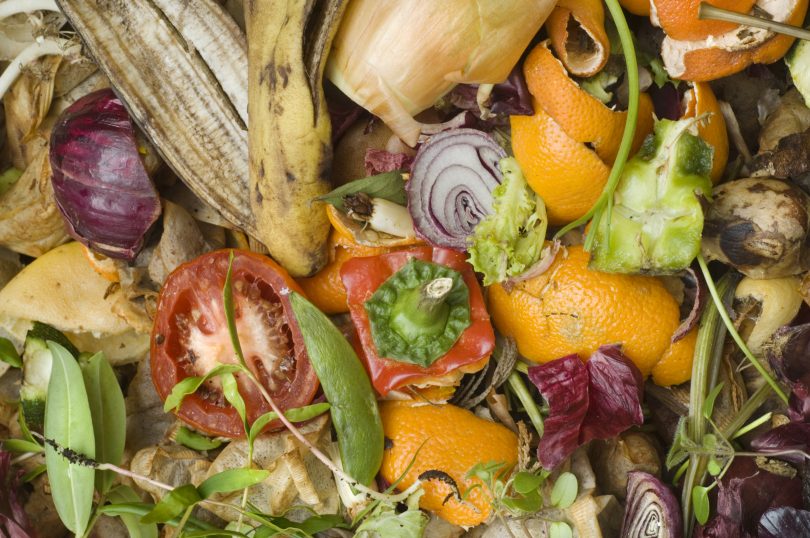
Why isn’t food being recycled as part of the green waste trial?
The ACT Government’s green waste trial is in full swing, with 8000 homes in Weston Creek already getting their garden waste collected, Tuggeranong residents signing up to be involved, and Belconnen homes able to be involved from 2018.
This level of uptake demonstrates that it is a popular initiative. It has also been very successful – recent reports indicate that there has been an exceptionally low level of contamination of things that aren’t supposed to go in the bin, showing that people who are motivated to get involved understand exactly what they need to do and are committed to recycling.
While it’s not surprising that kerbside pickup of green waste is popular, it isn’t actually diverting this waste from recycling. While we may have had to do it ourselves or paying local small business contractors to remove it, Canberrans have been committed to recycling our green waste. ACT Government information suggests that as far back as 2011, more than 90% of garden waste was already being recycled.
Given the ACT Government’s stated ambitions around reducing waste and greenhouse emissions, it is somewhat perplexing that the trial is missing the opportunity to capture a key part of the organic waste that currently goes to landfill – food waste.
The 2011 ACT Waste Strategy reported that between 40 – 50% of waste going to landfill is food waste. We know here in the ACT and across the country, we waste far too much food – a fact that is costing us money and creating unnecessary waste. While we need to do better as individuals and households, the reality is that for some time to come, we are going to see high levels of food waste being generated by households.
Given all of this, it is curious that the green bins initiative was not used as a way to reduce the real problem of food waste going to landfill and contributing to our greenhouse emissions – particularly given the fact that we know almost all landfill greenhouse emissions are actually created by decomposing food. This is in stark contrast to the push in previous decades to reduce waste to landfill. Previous governments embraced a target of no waste to landfill by 2010, and through the 1990s and 2000s we saw initiatives to reduce waste and improve recycling rates – including the introduction of resource transfer stations – rather than everything going straight to landfill.
The ACT Government has signaled some interest in collecting food waste but there are no firm plans to commence anytime soon. The reason for the hesitation is not clear. We know this can be done, given just across the border, the Queanbeyan-Palerang Regional Council’s green waste program includes food waste. The results of this mean that a jurisdiction that prides itself in being a leader in areas such as this is quickly being overtaken by councils all over NSW who are introducing food waste recycling. Food waste can be composted so that nutrients are retrieved to go back to the soil and taking food organics out of the system make other items – paper, cardboard, glass etc. – easier to retrieve for recycling.
Currently, the Conversation Council of the ACT region is running a petition to encourage the ACT Government to expand the trial to include food waste. People who are interested in signing, can so through visiting their website.
I think that food waste recycling should be part of the green waste trial currently being rolled out in parts of Canberra. What do you think?













